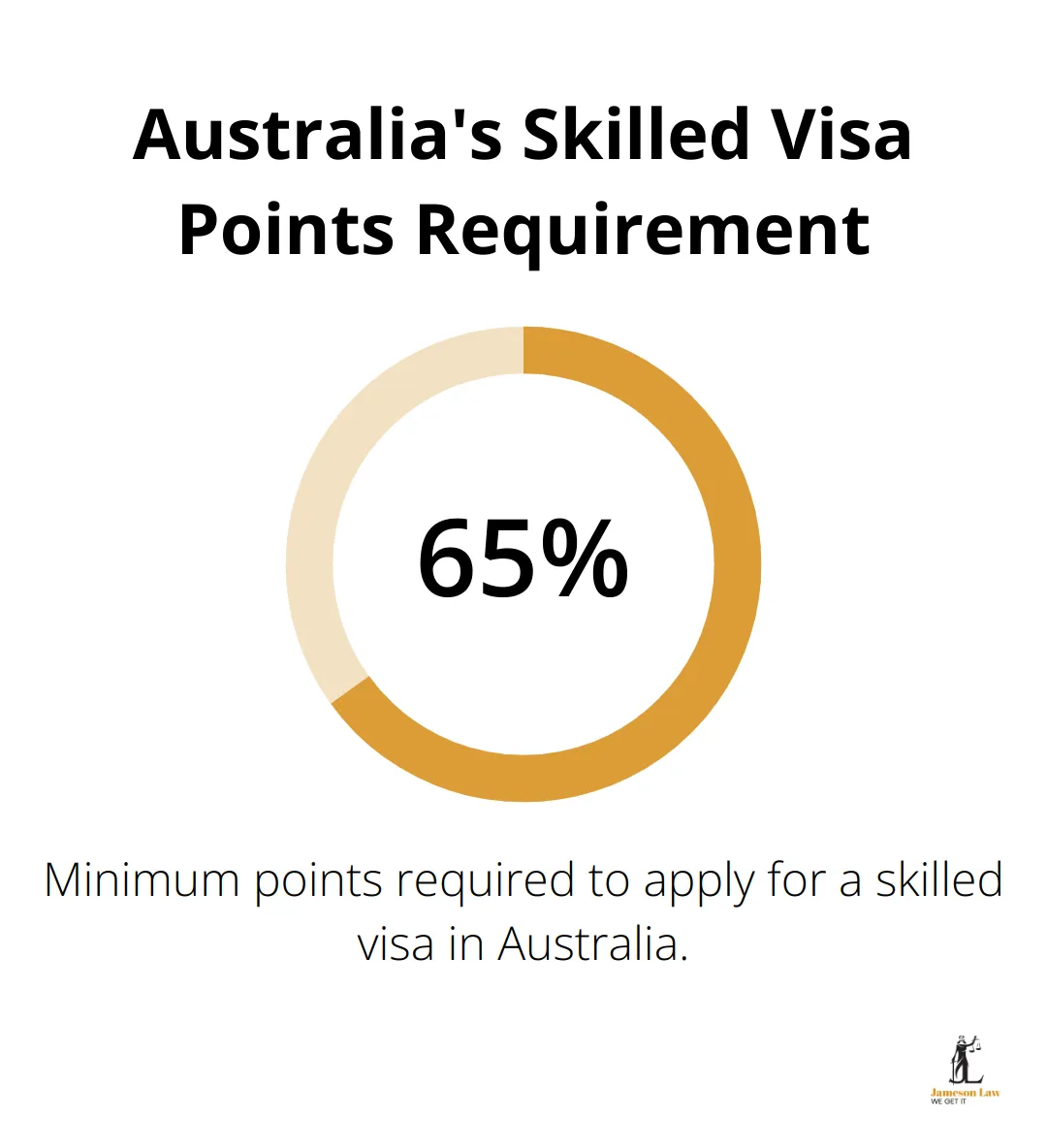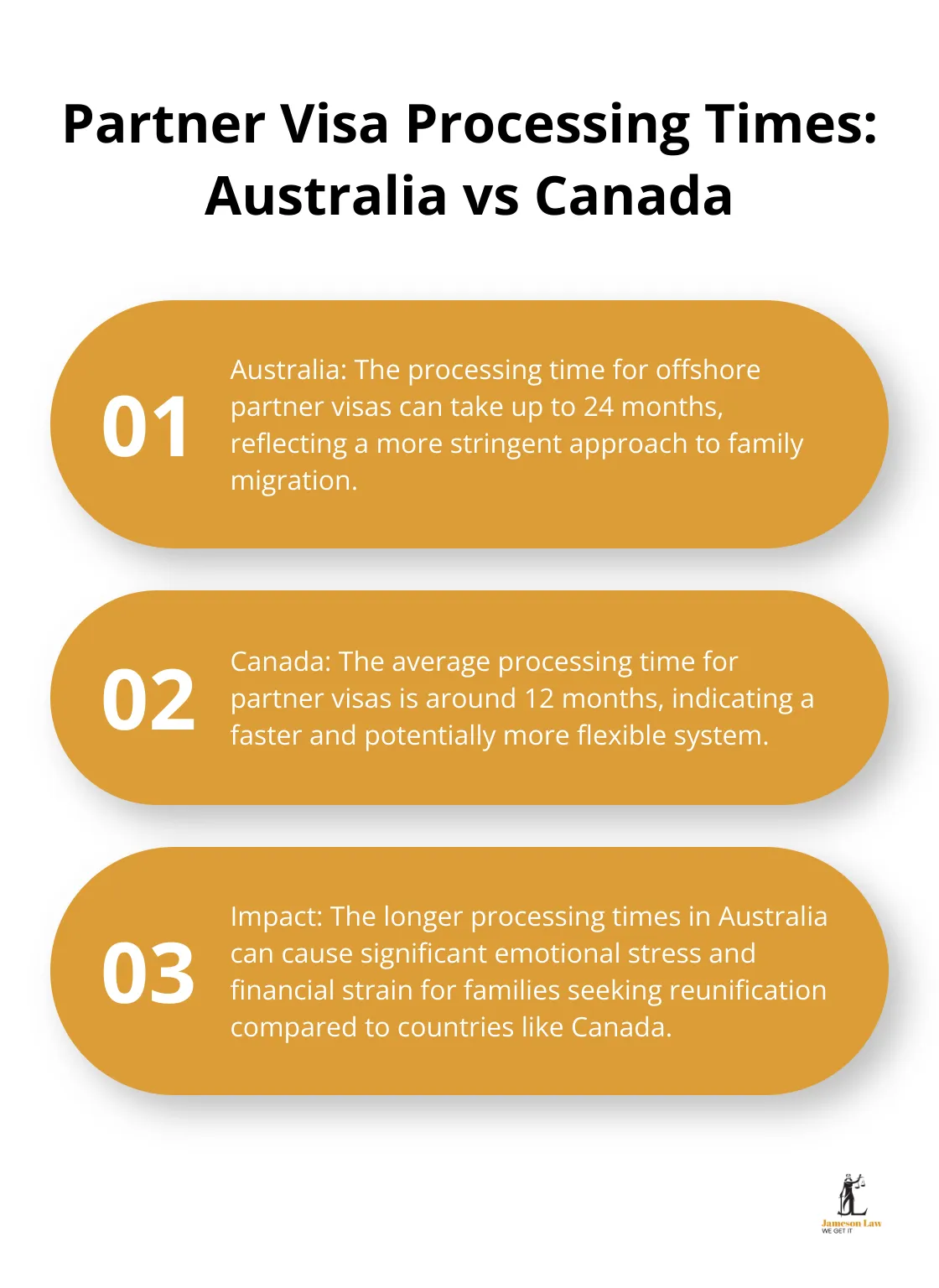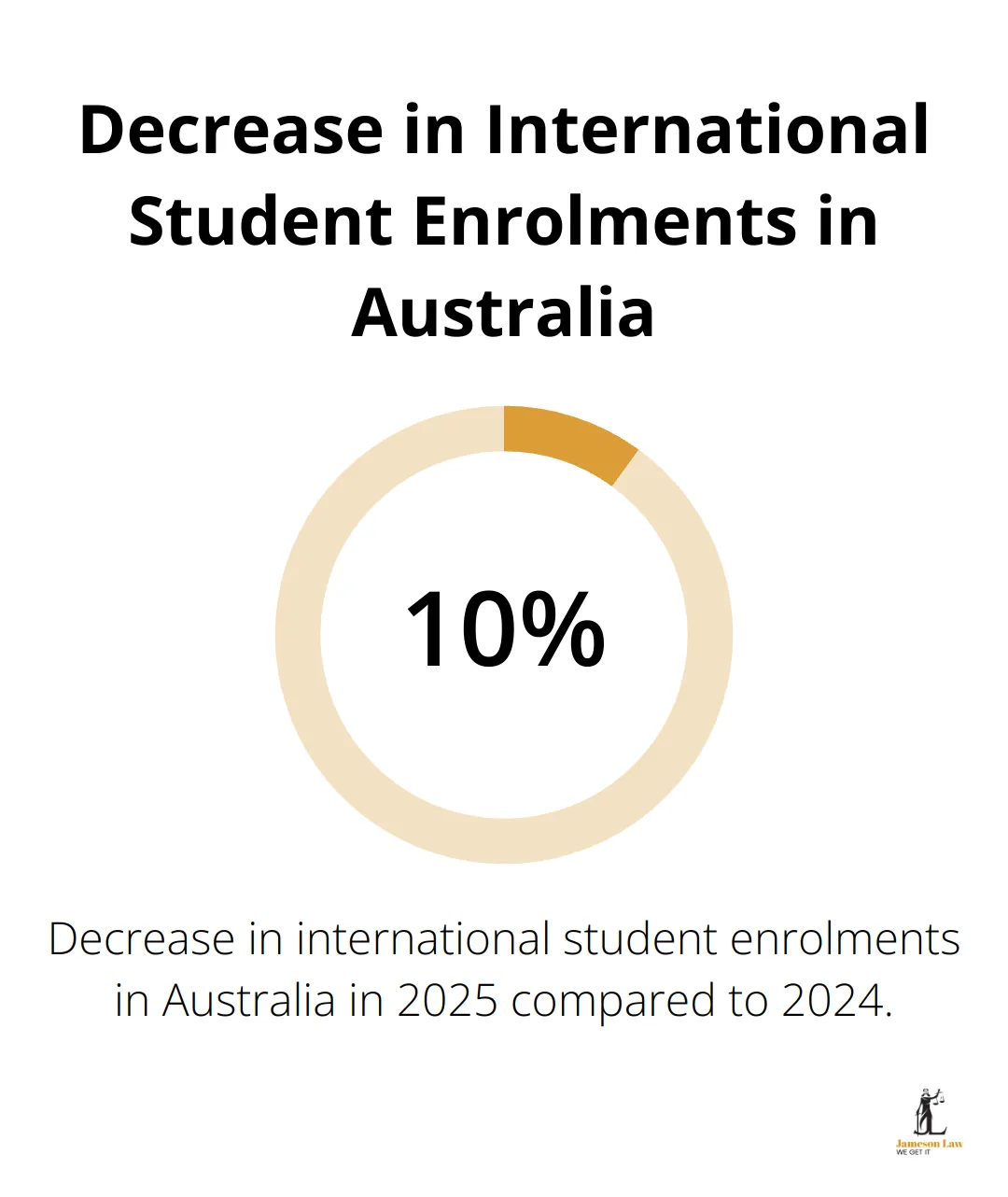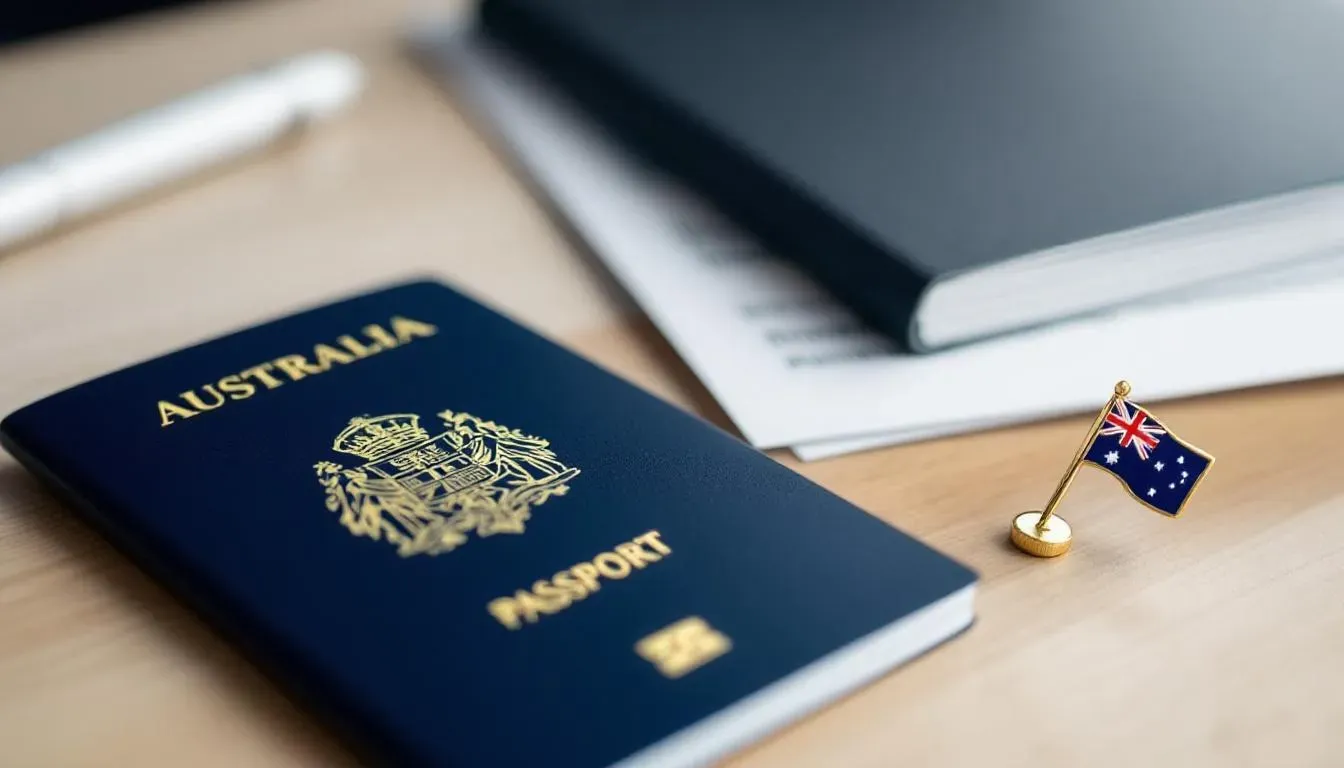Australia’s immigration laws have been a topic of intense debate in recent years. Many wonder: Does Australia have strict immigration laws compared to other nations?
At Jameson Law, we’ve seen firsthand how these regulations impact individuals and families seeking to make Australia their home.
This blog post will explore the key aspects of Australia’s immigration system, compare it to other countries, and examine the effects of these policies on various sectors of society.
How Does Australia’s Immigration System Work?
Visa Categories and Entry Pathways
Australia’s immigration system offers a range of visa options for those seeking to enter the country. These include skilled worker visas, family visas, student visas, and humanitarian visas. Each category has specific requirements and application processes.
For skilled workers, the points-based system is a key feature. This system evaluates applicants based on factors such as age, English language proficiency, work experience, and qualifications. A minimum of 65 points is required to apply for a skilled visa, but higher scores improve chances of selection. The Department of Home Affairs regularly updates the Skilled Occupation List, which outlines the professions in demand in Australia.

Student visas are another significant component of Australia’s immigration system. These visas allow international students to study in Australia, with the potential for post-study work rights. However, recent changes have made the process more stringent, with increased financial requirements and stricter English language tests.
Recent Policy Shifts
Australia’s immigration landscape has undergone significant changes in recent years. The government has reduced the permanent migration programme cap to 185,000 places for the 2024-25 financial year. This reduction reflects a shift towards a more targeted approach to migration.
One of the most notable changes is the introduction of the Skills in Demand (SID) visa, which replaced the Temporary Skills Shortage (TSS) visa. The SID visa programme is intended to simplify and streamline visa processing, target temporary skilled migration to address skill needs, and promote worker mobility.
Increased Scrutiny and Compliance
The Australian government has implemented stricter eligibility rules for temporary visa holders and introduced reforms in English language proficiency requirements. This trend towards increased scrutiny and compliance measures affects both individuals and businesses.
For employers, this means a greater need for compliance audits when hiring migrants. The rising enforcement risks make it essential for businesses to conduct thorough forward planning to secure skilled staff in light of these immigration policy changes.
The Role of Professional Advice
The increased complexity of Australia’s immigration system underscores the importance of seeking expert legal advice. Immigration lawyers can provide invaluable assistance in navigating the intricacies of visa applications and ensuring compliance with the latest regulations.
As we move forward to compare Australia’s immigration laws with those of other countries, it’s important to consider how these recent changes have positioned Australia in the global context of migration policies.
How Does Australia Compare Globally?
Australia’s immigration system stands out as one of the most complex and stringent worldwide. However, a closer examination reveals a nuanced picture with both strict and more flexible aspects.
Points-Based System: A Global Benchmark
Australia’s points-based system for skilled migration sets a high bar for entry. It only applies to the skilled migration visa programme and does not extend to the work, partner, student, working holiday or family visa programmes. This system is more demanding than many other countries, including Canada, which has a similar system but often requires fewer points for eligibility.
The Australian system’s emphasis on skills and qualifications means that highly skilled professionals often find it easier to migrate to Australia compared to other countries. However, for those who fall short of the points threshold, the path to migration can be challenging.
Student Visa Regulations: Balancing Opportunity and Control
Australia’s approach to international education mixes strictness and opportunity. The country has recently increased financial requirements for student visas, with applicants now needing to show evidence of funds equivalent to 75% of the national minimum wage (higher than many other popular study destinations).
Australia remains competitive in post-study work rights. Graduates can stay and work in Australia for 2-4 years after completing their studies, depending on their qualification level. This is more generous than countries like the UK, where post-study work visas typically limit stays to 2 years.
Family Migration: A Mixed Approach
Family migration policies in Australia are relatively strict. The waiting times for partner visas can be significantly longer than in countries like New Zealand or Canada. The processing time for offshore partner visas in Australia can take up to 24 months, compared to an average of 12 months in Canada.

Australia does offer some unique family visa options, such as the Contributory Parent visa, which allows faster processing for parents willing to pay a higher visa fee. This option, while expensive, provides a pathway that is not available in many other countries.
Humanitarian Programme: Controlled but Committed
Australia’s humanitarian programme, while smaller in scale compared to some European countries, is well-structured and provides comprehensive support for refugees. The programme caps at 20,000 places annually, which is relatively small compared to countries like Germany or Sweden. However, Australia’s resettlement services often receive praise as among the best in the world, providing extensive support for integration.
Compliance and Enforcement: Increasing Scrutiny
Australia has significantly tightened its compliance and enforcement measures in recent years. The introduction of the Skilling Australians Fund (SAF) levy for employers sponsoring foreign workers exemplifies this increased scrutiny. This levy is higher than similar fees in many other countries and places a greater financial burden on employers.
The Department of Home Affairs has also increased its focus on visa compliance, with more frequent audits and stricter penalties for breaches. This level of enforcement is more rigorous than in many other developed countries.
The complexity of Australia’s immigration system highlights the importance of expert guidance. Professional legal advice can make a significant difference in navigating these intricate regulations and improving the chances of a successful immigration journey. As we explore the impact of these strict immigration laws, we’ll see how they affect various sectors of Australian society and the economy.
How Do Strict Immigration Laws Impact Australia?
Skilled Migration and Workforce Dynamics
Australia’s stringent immigration policies have significantly altered the landscape for skilled migrants. The Department of Home Affairs has designated a total of 185,000 places for the permanent Migration Programme for the 2024-25 period, with 132,200 of these allocated to the Skill stream. This adjustment has created skills shortages in critical sectors such as healthcare, IT, and engineering.
The IT sector needs 60,000 skilled workers to meet growing demand, but only 7,000 IT graduates are produced annually in Australia. This gap partly results from the stringent visa requirements that make it difficult for overseas IT professionals to enter the Australian job market.
Employers feel the effects of these strict policies. An Australian Industry Group survey found that 75% of businesses reported difficulty in finding skilled workers, with 35% citing immigration restrictions as a major barrier. This situation has led to increased labour costs and project delays in various industries.
International Education Sector Challenges
Recent immigration changes have particularly affected the international education sector, a significant contributor to Australia’s economy. The Australian Bureau of Statistics reports that the sector contributed $37.6 billion to the Australian economy in 2024, a 5% decrease from the previous year.
Stricter financial requirements and English language tests have made Australia a less attractive destination for some international students. Universities Australia data shows a 10% decrease in international student enrolments in 2025 compared to 2024.

However, these policies have also led to a higher quality of international students. The Graduate Outcomes Survey indicates that international graduates from Australian universities in 2025 had a 5% higher employment rate within six months of graduation compared to the 2024 cohort.
Family Reunification and Humanitarian Programmes
The impact on family reunification has been substantial. The Department of Home Affairs reports that the processing time for partner visas increased from an average of 18 months in 2024 to 24 months in 2025. This delay has caused emotional stress and financial strain for many families.
The humanitarian programme has also experienced changes. While Australia maintains its commitment to refugee resettlement, the annual intake remains capped at 20,000 places. The Refugee Council of Australia notes that this figure is significantly lower than the global need (with over 26 million refugees worldwide as of 2025).
Economic Implications
These strict policies have complex implications for Australia’s economic growth. While they aim to ensure quality migration and protect local jobs, they also risk limiting Australia’s access to global talent and diverse cultural contributions.
A report by the Productivity Commission estimates that skilled migrants contribute an average of $130,000 more in taxes over their lifetime than they consume in government benefits. This figure underscores the potential economic benefits of a more flexible immigration system.
Future Considerations
As the global competition for skilled migrants intensifies, Australia may need to reassess its approach to maintain its competitive edge in attracting and retaining top talent. The balance between stringent controls and economic needs will likely remain a key challenge for policymakers in the coming years.
Final Thoughts
Australia’s immigration laws rank among the strictest globally, balancing economic needs, social cohesion, and national security. The points-based system for skilled migration, stringent student visa requirements, and rigorous compliance measures contribute to this reputation. The question “Does Australia have strict immigration laws?” receives a clear affirmative answer, yet opportunities exist for those who meet the criteria and navigate the system effectively.
Australia’s immigration landscape will likely continue to evolve, with potential reassessments to remain competitive in attracting global talent while addressing domestic concerns. Future policies might include more targeted skilled migration programmes, enhanced regional settlement initiatives, and streamlined processes for high-demand sectors. These changes could shape the answer to whether Australia maintains its strict immigration stance in the coming years.
The complexities of Australia’s immigration system highlight the importance of professional legal guidance. Jameson Law provides expert assistance in immigration matters, helping clients understand their options and improve their chances of a successful application. Whether you’re a skilled professional, international student, or family member seeking reunification, understanding these laws and seeking proper legal advice can significantly impact your immigration journey.













